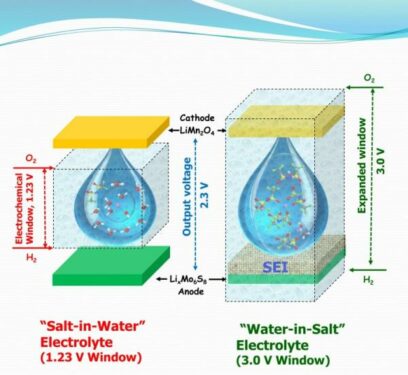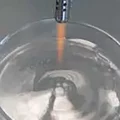Scientists in the US could have opened a new era for lithium-ion batteries after doubling the voltage of an aqueous electrolyte.
Researchers from the University of Maryland (UMD) and the US Army Research Laboratory revealed the “Water-in-Salt” aqueous lithium-ion battery technology in the journal Science.
The team doubled the electrochemical window of aqueous electrolyte to around 3V and demonstrated high voltage aqueous full lithium-ion cell with 2.3V.
The breakthrough could pave the way for aqueous batteries to seriously compete in terms of power and energy density with the non-aqueous lithium-ion batteries, said team leader Chunsheng Wang, an associate professor in UMD’s Department of Chemical & Biomolecular Engineering.
The key to the breakthrough was the use of a water-based electrolyte containing ultrahigh concentrations of a specially selected lithium salt.
This resulted in the formation of a thin protective film on the anode electrode for the very first time in a water-based battery, claim researchers.
A “Solid Electrolyte Interphase (SEI),” is essential to the high performance characteristics of lithium-ion batteries, but had previously only been achieved in non-aqueous electrolytes.
Researchers hope the discovery could eventually be used in kilowatt or megawatt level applications, such as electric vehicles or grid-storage devices.












